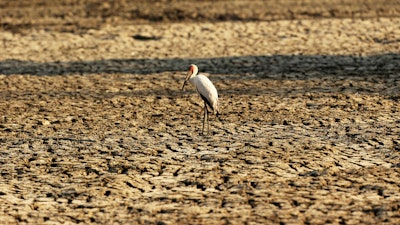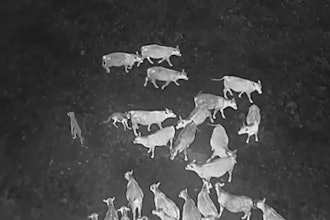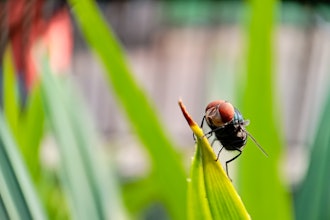
JOHANNESBURG (AP) — An estimated 45 million people are threatened with hunger by a severe drought strangling wide stretches of southern Africa.
Emergency food deliveries are planned for parts of South Africa, Zambia, Zimbabwe and other countries hard hit by a combination of low rainfall and high temperatures.
"We are witnessing millions of already poor people facing extreme food insecurity and exhausting their reserves because of compounding climate shocks that hit already vulnerable communities hardest. They need help urgently," said Nellie Nyang'wa, southern Africa director for the international aid agency, Oxfam.
"The scale of the drought devastation across southern Africa is staggering."
Parts of Zimbabwe have had the lowest rainfall since 1981, contributing to making more than 5.5 million at risk of extreme food insecurity, Oxfam said in a report released Thursday.
Zambia's rich maize-growing area has been hit hard and exports are now banned; 2.3 million people there are food-insecure, according to Oxfam and the Zambia Red Cross. The drought is also worsening food availability in Angola, Malawi, Mozambique, Madagascar and Namibia, Oxfam said.
Southern Africa has received normal rainfall in just one of the past five growing seasons, which particularly hits the small-scale farmers who depend on rain for their crops, the U.N. World Food Program said last week. The U.N. food agencies plan to distribute emergency food aid to 11 million people in the coming months.
Two cataclysmic cyclones hit Mozambique, Zimbabwe and other southern African countries early this year, wiping out crops of maize and other staple crops. Without normal rainfall, subsistence farmers are hard-pressed to recover from the destruction caused by the tropical storms.
"The successive mixture of drought and flooding has been catastrophic for many communities. In most of the affected areas there isn't enough drinking water, which means that people and animals — both livestock and wildlife — are having to use the same water points," said Kaitano Chungu, Secretary General of the Zambia Red Cross.
"This is unacceptable as it exposes people to diseases and creates a heightened risk of animal attacks."
Some families in the worst-affected areas are surviving the food shortage by eating wild fruits and roots, Chungu said.
The drought has also affected the region's wildlife. At least 105 elephants have died in Zimbabwe as a result of lack of water and vegetation, according to Zimbabwe's National Parks.






















